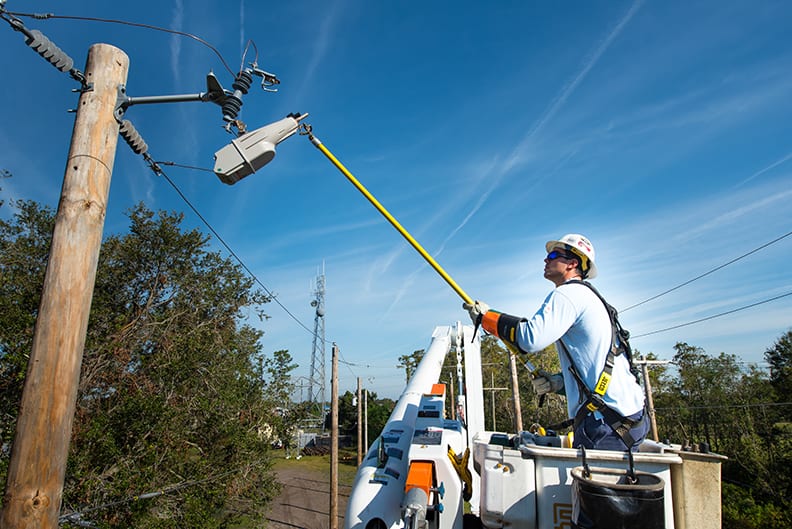Statistics Students, OUC Team Up To Tackle Power Problems

(Credit: Orlando Utilities Commission)
UCF students recently converted a drawback to an advantage when they tackled an overabundance of data generated by “smart” meters used by Orlando Utilities Commission (OUC).
The smart meters offer multiple benefits to the business and its customers, from improved accuracy and streamlined meter reading to mapping strategies for long-time goals. But with over 400,000 meters reporting data back daily, the data team was struggling to keep up with a near-constant flow of feedback.
“We embarked on this data journey, but we had no place to put the data,” explains Dawn Frye, manager of smart grid and meter data management. “We wanted to stop throwing it away.”
OUC reached out to the Department of Statistics and Data Science for assistance. Together they narrowed the scope of their data mission to two objectives: identifying theft through meter tampering and forecasting the prevalence of electric car charging. For added incentive, they packaged their assignments to students as a competition with cash prizes and bragging rights.
“This gave students opportunity to use what they learn and take their learning from theoretical and abstract to concrete,” said Assistant Professor Rui Xie, Ph.D.
Months of parsing raw data by 15 teams revealed irregularities that signal potential theft and established the groundwork for future forecasting of electric vehicles. The student winners were: Phuong Pho, Yuan Du and Jianbin Zhu for the Utility Theft case and Daniel Mariano, Ryan Jones, Anna Perdue and Dharitrikumari Rathod for the EV Detection case.
The work wasn’t without its challenges. Students typically learn the fundamentals of data analysis using rudimentary data sets. In contrast, the OUC data was raw and unfiltered information that needed context and sorting before it would yield anything useful. Establishing protocols and inquiries just to start using the data took a solid two to three months of creative problem solving by students, Xie said.
“There was a lot of frustration initially. But we built on our class work and slowly began to set more accurate goals,” Xie said.
Both objectives built on the strengths of the smart meter investment made by OUC. Detecting theft previously required a physical inspection and many false positives; data can reveal unusual activity remotely and efficiently.
The second task builds on the long-term goals of OUC to remove as much greenhouse gas from the atmosphere as it produces — a benchmark called “net zero” — by 2050. Meeting that long-term goal requires the company to understand how demand will impact its output for tasks like charging electric vehicles and the output it will need as it converts its plants to natural gas.
“We’re continuing to uncover more and more ways to use the data,” said Eddie Fee, director of meter services at OUC. “It enhances and enables programs for operations, customer service, energy time-of-use and water conservation initiatives.”
Fee adds that students are also reaping the benefits when they enter the job market and can point to work on real-world projects like OUC’s data.
“It really pays dividends. They’re not just sitting in class doing theoretical problems,” Fee said.
